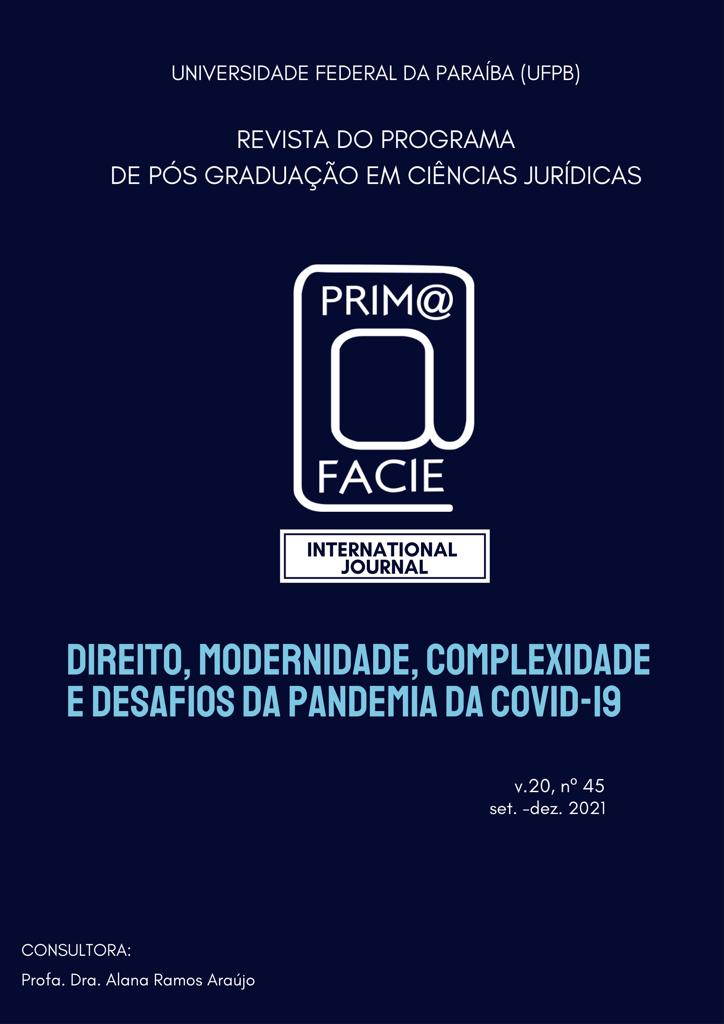The Importance Of Judicial Precedents In Times Of Crisis: An Analyses From The Covid-19 Experience In Brazil
DOI:
https://doi.org/10.22478/ufpb.1678-2593.2021v20n45.52117Keywords:
Precedentes judiciais. Crise. Segurança jurídica.Abstract
The Covid-19 pandemic has had unprecedented impacts in many countries, regardless of economic, geographic and political position. The consequences of social isolation, in its horizontal and vertical dimensions, were wide and its effects and extent are not known for sure. Among the problems engendered by Covid-19, the impact on established legal relations has great repercussions, which required the establishment of clear regulatory frameworks to ensure legal certainty and equality in the assessment of the various legal issues, of public and private law, carried out . It is in this sense that the so-called crisis jurisprudence gained importance and effectiveness as a normative parameter. Starting from this premise, the work aims to analyze the importance of judicial precedents issued in the context of the crisis and the role played in the stabilization and integration of the legal order. The research methodology used in the work consists of a bibliographic survey articulated with the documental qualitative technique embodied in the analysis of court decisions handed down by the Supreme Court. It is concluded, therefore, that one of the main legacies of the crisis caused by the pandemic concerns its contribution to the understanding of the formation of judicial precedents and its application in Brazilian judicial practice.
Downloads
Downloads
Published
How to Cite
Issue
Section
License
Copyright (c) 2021 A Prim@ Facie detém direitos exclusivos de publicação e distribuição sob concessão absolutamente franca da parte do autor, ou autores.

This work is licensed under a Creative Commons Attribution-NonCommercial-NoDerivatives 4.0 International License.
Os autores estão cientes de que transferem seus direitos de publicação e distribuição à revista Prima Facie. Os autores autorizam o uso do trabalho para fins não-comerciais, incluindo direito de enviar o trabalho em bases de dados de Acesso Livre. As provas finais poderão não ser enviadas aos autores antes da publicação, seguindo a revista seu padrão técnico explicitado nas suas normas e nos formatos praticados em acordo com a CAPES e com padrões de excelência adotados. As opiniões emitidas pelos autores são de sua exclusiva responsabilidade não sendo a revista solidária da livre opinião exposta por eles.

